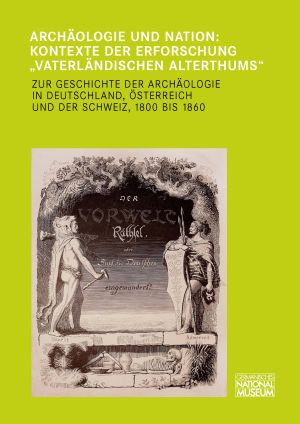How to Cite
License (Chapter)

This work is licensed under a Creative Commons Attribution-NonCommercial-NoDerivatives 4.0 International License.
Published
Römische Kultur, helvetische Tugenden
Vaterländische Altertumskunde in der Schweiz vor der Entdeckung der Pfahlbauten
Roman Culture, Helvetian Virtues: Archaeology in Switzerland before the Discovery of the Pile Dwellings
To date, there has been little research into the history of archaeology in Switzerland and its historical context in the first half of the 19th century. Archaeological activities in the period from the Helvetic Republic to the foundation of the Swiss Federal State in 1848 were overshadowed by the discovery of the pile dwellings in the winter of 1854. What were the subject and goals of archaeology during the period of nation-building? What were the motivations of archaeologists? What was excavated, and under what conditions? These questions are addressed by studying specific examples: Franz Ludwig Haller’s publications on Roman Switzerland, Ferdinand Keller‘s trip to England and the foundation of the Antiquarian Society in Zürich in 1832, the archaeology of burials in the 1840s, and the excavations conducted by Joseph August Isaak in the canton of Lucerne.







